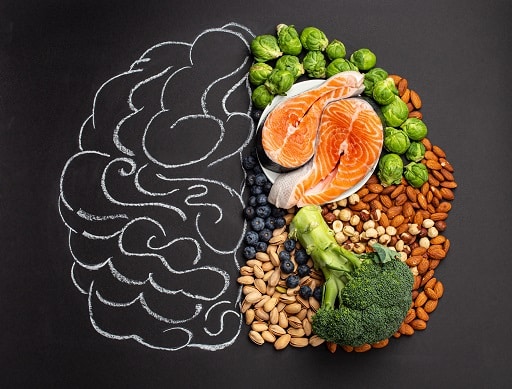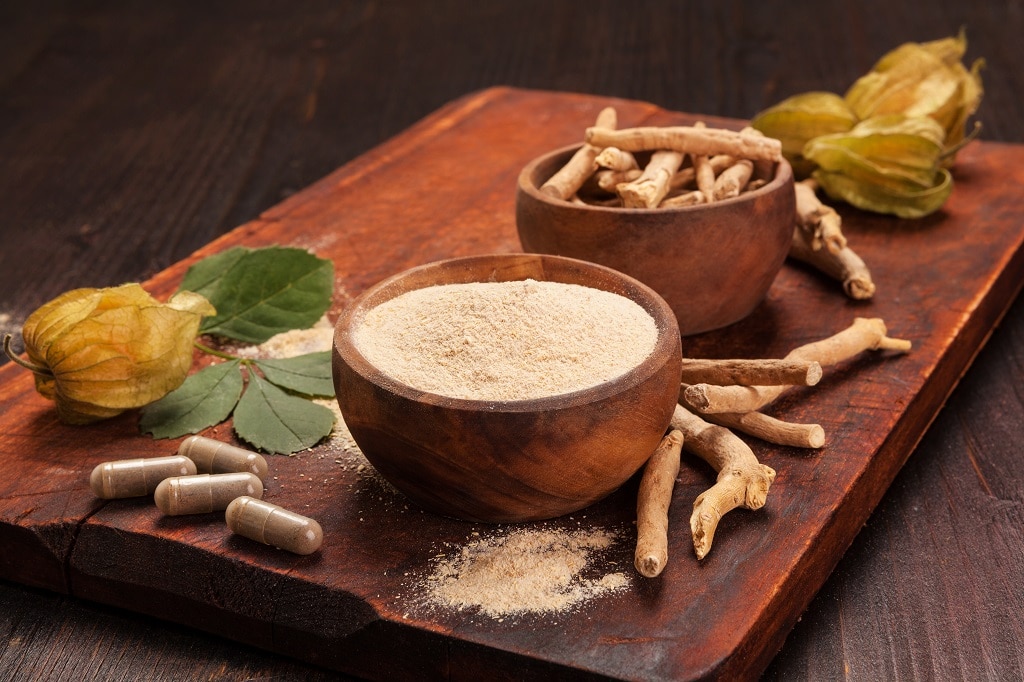
10 Foods That Help Fight Fatigue
We are big fans of the “eat the rainbow” approach to healthy eating. The colorful fruits, vegetables and legumes that are part of this group
Many people start to think more about joint health as they get older. Knees get a little achy, and you become much more aware of joint health. But, it’s never too late to start incorporating more anti-inflammatory foods into your diet and promoting healthy joints. Keep reading as we discuss foods that are good for joint health.
Unfortunately, it’s impossible to avoid the aging process altogether. Stiffness and joint pain seem to go alongside aging. At age 30, your body begins to lose bone density and muscle mass. Both of these can create joint stiffness and pain.
The connective tissues and ligaments get stiffer. Any muscle loss can also increase the pressure on your joints, especially on the knees. Your cartilage protects your joints. It’s a slippery layer that allows the joints to move around freely. Between your joints, you have synovial fluid, which helps reduce friction when you move.
As you get older, the layer of cartilage gets thinner, and the lubricating liquid inside the joint decreases. This is what can create that stiff feeling in the joints.
When talking about joint health, it’s normal to think of arthritis. Arthritis is a condition that causes inflammation and pain in the joints. About one in four US adults have arthritis. While there are general aches and pains as you get older, it’s important to speak to your doctor if joint pain affects your daily life.
It’s not just aging that plays a role in joint health. To keep your joints as healthy as possible, the following are also important:
In general, a healthy lifestyle sets the foundation for good joint health. Being physically active, eating a varied and balanced diet, and maintaining a healthy weight will encourage healthy joints as you age.
Maintaining a healthy weight is one of the most important elements of making joints stronger. Excess weight puts a lot of pressure on your weight-bearing joints like hips, ankles, knees, and back. What helps strengthen joints is a combination of lifestyle factors.
You can strengthen joints through a variety of activities like:
When you think of joint health, it’s easy to jump to exercising and lifting weights. While remaining physically active is important for healthy joints, your diet can impact inflammation in the body. Here are 14 foods that are good for joint health.
Garlic contains diallyl disulfide, an anti-inflammatory that works to combat pro-inflammatory markers. Adding more garlic to your diet may help to fight inflammation.
Natural health experts often report garlic as one of the best natural remedies for arthritis. Research suggests that garlic oil is anti-inflammatory, with some people rubbing garlic oil on sore and inflamed muscles.
It’s easy to write off all fats as unhealthy, but this really isn’t the case. Your body needs certain fats to function optimally. The source and type of those fats are important.
Omega-3 fatty acids are a family of polyunsaturated fats you have to get through your diet; your body can’t produce them. These fatty acids are associated with various health benefits, like reducing the risk of depression and inflammatory diseases.
Some of the best foods for healthy joints and cartilage contain omega-3 fatty acids. Because omega-3s may help fight inflammation, the research into rheumatoid arthritis is much more extensive than in other areas.
Research has found that people taking omega-3 supplements have less morning stiffness and joint pain. It also reduces the number of tender joints in those with rheumatoid arthritis.
You can find omega 3-fatty acids in foods like:
Although nuts and seeds come in little packages, they have a pretty big nutritional punch. Not only are they rich in polyunsaturated and monounsaturated fats, but other beneficial nutrients like protein and antioxidants.
Some nuts and seeds also contain nutrients like vitamin E and l-arginine, which may help keep inflammation at bay. Nuts and seeds are also heart-healthy foods that help to support your heart. This is especially important for people with rheumatoid arthritis as their risk of heart disease is higher than healthy adults.
Try adding these nuts and seeds to your diet to fight inflammation and support joint health:
Extra virgin olive is packed with antioxidants and may help to fight inflammation. Olive oil contains monounsaturated fats. It also has a compound called oleocanthal which may help prevent the production of pro-inflammatory markers.
Virgin olive oil is a key part of the Mediataran diet. Mediterranean populations tend to experience less chronic inflammatory disease and regularly consume virgin olive oil.
The oleocanthal in olive oil has unique properties similar to that of Ibuprofen. Long-term consumption of virgin olive oil may contribute to the health benefits linked to the Meditation diet.
Legumes like beans, lentils, and chickpeas contain fiber, protein, and phytonutrients. Lentils and beans are also ideal if you’re trying to reduce your meat consumption. Pulses are high in potassium and magnesium, which may help reduce inflammation.
Try adding legumes to your diet, including:
Red and green peppers are a great source of vitamin C, which helps preserve bones and joints. Bell peppers also contain antioxidants to combat oxidative stress.
If you like to add a little spice to your diet, chili peppers contain capsaicin. Some research suggests that capsaicin may have anti-inflammatory properties and reduce the risk of heart disease and stroke.
Whole grains are an excellent source of selenium. Research suggests that people with rheumatoid arthritis tend to be low in selenium.
When talking about grains, it’s important that you focus on whole, not refined grains. Grains have three parts: the outer bran, the inner germ, and the endosperm in the middle. Whole grains have all three parts, while refined grains don’t have germ or bran. So, whole grains contain the most nutrients, vitamins, and minerals.
To get the most out of the nutrition of your grains and limit inflammatory foods in the diet, try the following whole grains:
Ginger has a sharp and distinct flavor. In addition to its culinary use, ginger has long been used for its medicinal properties. Rich in antioxidants and anti-inflammatory properties, it’s also thought to boost your immunity.
One study found that ginger was as effective as Ibuprofen. Further research shows ginger and echinacea supplements effectively reduce joint inflammation after knee surgery.
The therapeutic effects of ginger are promising, and more research is needed to explore its potential benefits on human health.
Broccoli contains a compound called sulforaphane. Initial research shows that sulforaphane may block inflammation and slow the decline of cartilage in osteoarthritis.
Other cruciferous vegetables may also form part of a joint-healthy diet like:
Berries are packed full of antioxidants, vitamin C, and carotenoids, which give berries their color.
One of the top foods for knee joints may be blueberries. One study found that blueberries improve pain and inflammation in patients with knee osteoarthritis. Some evidence also suggests that fruit polyphenols like quercetin and citrus flavonoids could help relieve rheumatoid arthritis symptoms.
Here are some berries to add to your diet and support the joints:
The active ingredient in turmeric is known as curcumin. It’s a natural substance with anti-inflammatory properties.
Initial research suggests that curcumin may help ease osteoarthritis pain. Several studies support curcumin’s effectiveness as a way to treat arthritis. However, experts need more evidence before making a full recommendation for treatment.
Dark leafy greens like spinach, kale, and collard greens are packed full of nutrients associated with healthy joints. Foods good for bones and joints tend to contain vitamin C and antioxidants to keep you strong.
Dark chocolate contains natural anti-inflammatory compounds, like antioxidants and phytochemicals. Eating dark chocolate may help fight inflammation, but more research is currently needed.
The beneficial compounds in chocolate are much higher in dark chocolate than in milk or white. Remember that dark chocolate is a calorie-dense food and could contribute to weight gain. Try to eat it in moderation.
Some evidence suggests that eating foods high in the antioxidant beta-cryptoxanthin could help reduce the risk of developing inflammatory conditions like rheumatoid arthritis.
Foods good for joint inflammation include:
There’s an ongoing debate that nightshade vegetables (tomatoes, white potatoes, eggplant, and bell peppers) could anger arthritis symptoms. The family of vegetables contains a compound called solanine. Some people blame joint stiffness, pain, and aches on a build-up of solanine in the body.
The truth is that there isn’t enough evidence that avoiding the trace amounts of solanine in nightshade vegetables would reduce joint issues. One of the best ways to support joint health is through a plant-rich, balanced, and healthy diet.
It probably comes as no surprise that the worst inflammatory foods for the joints tend to be high in unhealthy fats and sugar.
Whether you want to know which food is not good for knee pain or what encourages inflammation in the body, the answer is the same.
Some of the top offenders of the standard Western diet include:
Cigarette smoking is associated with higher cartilage loss. Smokers are also more likely to experience overuse injuries, sprains, and fractures than non-smokers. Smoking is also a significant risk factor for rheumatoid arthritis development and severity.
Alcohol can dehydrate the body and strip nutrients. This can lead to an increase in inflammation and joint pain. Alcohol may magnify joint pain and decrease bone density which is a concern for arthritis and bone fractures.
If you’re unsure where to start or looking for a way to sneak in some potent anti-inflammatory compounds, a superfood blend is a good option. Personal Nature’s Anti-Inflammatory Blend includes a science-backed mixture of foods to lower inflammation and promote well-being.
With turmeric, ashwagandha, black pepper, cinnamon, and lucuma, you can easily incorporate some of the best anti-inflammatory compounds into your diet. Simply add a teaspoon to your smoothie or breakfast to feel the benefits.
If you’re wondering what foods promote healthy joints, the answer tends to be typical of a healthy diet. Eating lots of fruits, vegetables, and whole grains, while avoiding ultra-processed and high-sugar foods sets a good foundation for healthy joints.
It’s important to remember that while your diet plays a crucial role in overall joint health, it’s not the only thing that makes a difference. Staying physically active, moving your body, and strengthening muscles are vital in keeping joints healthy.
A healthy weight takes the pressure off and helps to protect your joints. Strong joints and overall health will benefit you as you get older. While it’s tough to avoid all the aches and pains that come with getting older, you can take steps to support your joint health now and in the future.

We are big fans of the “eat the rainbow” approach to healthy eating. The colorful fruits, vegetables and legumes that are part of this group

Many people start to think more about joint health as they get older. Knees get a little achy, and you become much more aware of

Have you ever set a pretty out-there nutrition or weight loss goal only to be disappointed? Sometimes, it can feel like you’re not getting anywhere

Did you know that many women experience more joint and muscle pain around the time of menopause? As if menopause wasn’t a challenging enough time

Did you know that ashwagandha contains compounds that may reduce stress, anxiety, and inflammation? It feels like there’s always something new to try in the
*The statements on this website have not been evaluated by the Food and Drug Administration. The products for sale are not intended to diagnose, treat, cure, or prevent any disease.